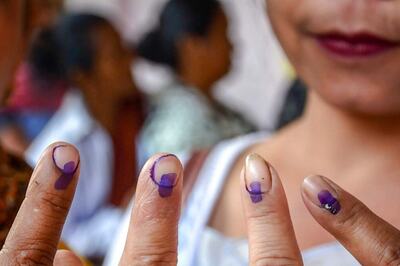
views
New York: Accusing the Indian government of "abandoning" them to their fate, Indian dock workers from Mississippi who claim to be victims of modern day slavery have now sought the help of the United Nations.
The workers, who claimed they were tricked into coming to the US under the H2B guest workers programme on a false promise of permanent residency and were forced to live under inhuman conditions, met the Deputy Director of New York office of High Commissioner for Human Rights Craig G Mokhiber in New York on Tuesday.
After the 45-minute meeting, Saket Soni, who led the Indians, said Mokhiber had agreed that their alleged ill treatment constituted violation of international and humanitarian laws.
Mokhiber, however, did not comment on the meeting.
Signal International had said it had fired the recruiter after it learnt of its misconduct but denied the workers' charges that they were being treated as slaves as "baseless and unfounded".
Seventeen workers had come to New York to meet with the UN official.
They said the official discussed with them the various courses open to them in the United Nations.
Though their fate remains uncertain, the workers who met Indian Ambassador Ronen Sen last month after a 1,500-km march from New Orleans and demanded a CBI probe, said they would not leave the country without getting justice for themselves and others placed in the same condition.
They, however, regretted the Indian government's apathy.
"We spent three hours relating our tales to the Indian Ambassador and other embassy officials in Washington and were ultimately told that they could act only within the protocol," a worker said, asserting they only wanted the Indian and US governments to work together to find a solution.
Expressing their firm determination to continue the fight till justice is done, Soni said the struggle was not personal "but on behalf of all workers who come from poor developing countries to better their economic conditions and find themselves living in slavery."
In Washington, they said they had met 10 lawmakers who were sympathetic to their cause after they explained that the work visa, which binds the worker to one employer, is among the reasons for their exploitation.
Asked about their future programme, the workers said they would take a decision within next two weeks.
PAGE_BREAK
Waving the advertisement to which they had responded, they said they were interviewed by the Indian and American recruiters, representatives of the company and their lawyers before they were selected.
They were promised that the company would get them permanent residency or green card and that they had paid $20,000 each as a fee for visa and green card.
Asked what was the status of the workers, who walked out early last month, as the company might have terminated their services by now, the Staff Attorney of Asian American Legal Defence and Education Fund, which has filed a class action suit against the company, said he is uncertain.
If the workers escape and file a complaint of exploitation against the employer, they are generally allowed to stay until the case is decided, he said.
The workers had come here on H2B visa, which is valid for 10 months and can be renewed only twice.
The Indians said several charitable organisations had pledged their support but so far they have been spending their own savings.
Their families back home are feeling the pinch as they are unable to send the money to support them and some of them have moved with the parents, they said.
Asked why they did not try for H1B visa, which would have allowed them to stay for three years with one extension, the workers said they were told the company has been allowed to bring them only on H2B visa.
The workers said that some 90 of 600 employees recruited from India and the UAE were still working with Signal but were not sure how many of those who had walked out had found jobs.
But Signal says that the "vast majority of the workers" recruited had been satisfied with their conditions and that the workers were being paid "in excess" of prevailing rates and in full compliance with the law.
Signal, which undertakes oil rig repairs, had brought the workers in the wake of shortage of labour after Hurricane Katrina under the government's temporary guest programme.
The company said it had spent over $7 million constructing state-of-the-art housing complexes" for the workers.




















Comments
0 comment